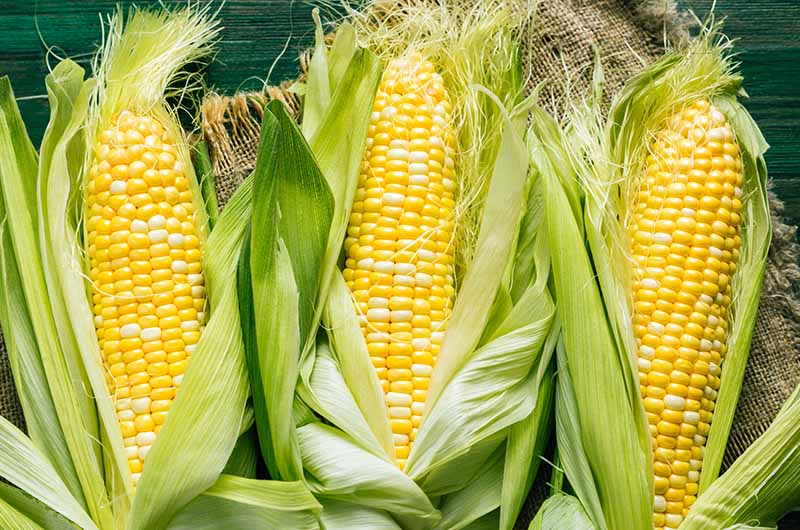Lend an ear: Why corn on the cob belongs at your cookout

Corn on the cob, a cookout classic, also represents a healthier side dish than some other summer staples.
According to the U.S. Department of Agriculture, one cup of raw, sweet yellow corn – roughly the same as one large ear of corn – clocks in at 125 calories and 2.9 grams of fiber. According to the Academy of Nutrition and Dietetics, eating enough fiber – 25 grams a day for women and 38 grams for men – can reduce the risk of chronic diseases such as cardiovascular disease, Type 2 diabetes and some types of cancer.
A cup of raw sweet corn also is packed with 392 milligrams of potassium, which helps regulate blood pressure by easing tension in blood vessel walls and lessening the effects of sodium.
“If people are choosing to have an ear of corn at a barbecue instead of a bunch of potato chips, they are getting more micronutrients and are going to feel full because of the fiber,” said Maya Vadiveloo, an associate professor in the department of nutrition and food services at the University of Rhode Island in Kingston. “When it replaces other, less healthy foods, that can really be a win-win.”
For people who grill frequently, Vadiveloo recommends putting corn on the cob in foil to protect it from excess heat and resulting carcinogens. To add a punch of flavor, season corn with herbs and spices or lime juice rather than slathering it with butter and salt. And for a healthy spin on Mexican street corn, substitute plain low-fat Greek yogurt for sour cream and mayonnaise, Vadiveloo said.
Corn can be a vegetable or a grain depending on when it’s harvested. When the kernels are soft and full of liquid, as you’ll find in the grocery store, corn is considered a starchy vegetable. If corn is harvested when fully mature and dry, it’s a grain. That’s why popcorn is a whole grain.
Corn kernels can be white, yellow, blue, red, purple or black. Natural compounds called phytochemicals give fruits and vegetables their various colors and may offer heart-protective benefits.
“Deeply colored fruits and vegetables tend to be richer in certain phytochemicals,” Vadiveloo said. But if it comes down to choosing between white and yellow sweet corn, Vadiveloo said to go with taste preference rather than worry about one being “better for you.”
Crunching on corn may even help keep your eyes healthy thanks to carotenoids, a phytochemical that gives yellow corn its pigment.
So, when your pals ask what to bring to a cookout, tell them to listen closely and lend you an ear. Of corn, that is.





